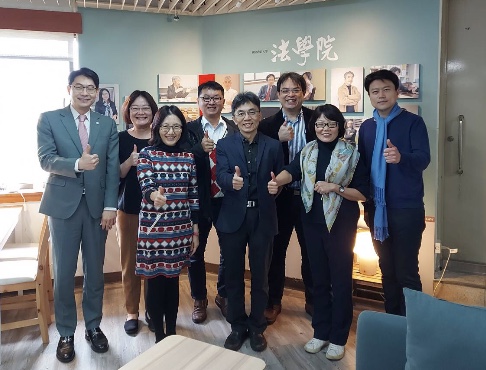 法學院碩士在職專班、高齡社會法制研究中心、多元文化與法律研究中心、科技變革與金融創新研究中心112年1月7日共同舉辦「氣候變遷因應法草案對產業之衝擊與因應」工作坊,邀請中鋼公司與玉山商業銀行,針對我國日前雖提出氣候變遷因應法草案(發布新聞稿時已經通過立法),卻未完全考慮到我國的產業結構和特性,致願景與現實有所落差,故透過此次工作坊,加強法學與產業界之間的對話溝通,亦對於政府之政策規劃提供建議。
法學院碩士在職專班、高齡社會法制研究中心、多元文化與法律研究中心、科技變革與金融創新研究中心112年1月7日共同舉辦「氣候變遷因應法草案對產業之衝擊與因應」工作坊,邀請中鋼公司與玉山商業銀行,針對我國日前雖提出氣候變遷因應法草案(發布新聞稿時已經通過立法),卻未完全考慮到我國的產業結構和特性,致願景與現實有所落差,故透過此次工作坊,加強法學與產業界之間的對話溝通,亦對於政府之政策規劃提供建議。活動由吳秦雯老師進行開場與引言,說明本學期在法學院碩士在職專班開設「永續、社會與治理—ESG的法制挑戰」課程之相關內容,接續由中鋼公司環境保護處吳一民處長介紹該公司參與相關國家法制作業之具體作為。2014年研析制定溫室氣體減量及管理法時,中鋼公司即參與法制架構之規劃,以碳定價為例,於2015年溫室氣體減量及管理法中,規劃我國以「碳交易」作為碳定價機制,至今碳交易尚未上線;而目前規劃改為徵收碳費,則將以「排放量」而非以排碳之「原燃物料」收取碳費,如此作法可能增加行政負擔,亦將增加企業排碳量盤查所付出之內部盤點、外部驗證等行政成本。
在綜合交流之過程中,朱德芳老師與臧正運老師提出幾點問題,並由中鋼公司企劃部門陳冠富助理副總經理、環境保護處吳一民處長、法務處張容綺處長、環境保護處環保二組汪俊育組長回應。第一,中鋼公司於2004年即開始實行碳盤查,並逐年委託公正第三方查驗機構查證,取得查證聲明書,並為減少盤查花費之人力物力,現已運用既有之資料庫逐漸轉型為智慧數據建立模式。第二,關於減碳措施,中鋼公司參考同業標準訂定短、中期目標,亦推動能源轉型及新技術研發,如:氫能冶煉,期達成我國2050年達到淨零排放之目標,並推動氣候變遷財務風險揭露(TCFD)
,並致力於綠化與生物多樣性,朝向永續發展之目標前進。第三,中鋼公司針對ESG之S(社會責任,social),以社會服務之精神,首先響應政府推動都市污水回收使用,並制定多元水資源策略,降低用水風險並減少自來水使用;中鋼公司也協助高雄在地學校用電設備之設置,進行汰換老舊冷氣為節能家電之補助;又中鋼公司設立爐石環境教育中心,以推動循環經濟之提倡。
最後,關於我國法制與產業之間對話之空間,中鋼表示,現今我國法制授權條款眾多,若又是空白授權,將使得產業執行面不確定性升高,雖主管機關已於修法過程與產業多所溝通,但仍可能存在未竟之處,而無法避免部份不合理之情形,故建議我國應參照歐盟立法原則,盡量將相關規範制定明確,以降低業者經營上之不確定性。玉山商業銀行朱資深經理懷元亦分享該公司對於綠色金融之相關策略並與中鋼公司進行交流。
透過此次工作坊跨界產業界與學術界之交流討論,借鏡中鋼公司之經驗,尋找未來在氣候變遷因應下產業界能夠執行的更具體做法,並提供後續對話討論及實際推動的基礎。

